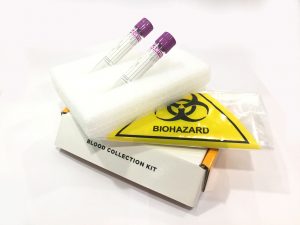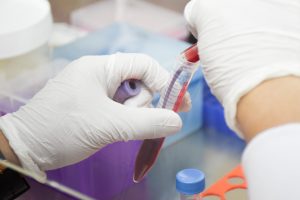
Advancing technology and medical research has unveiled new, non-invasive cancer tests that deliver highly accurate cancer screening results with a simple blood test. The technology, which involves scanning the blood, also referred to as a ‘liquid biopsy’, where a test is done on a sample of blood to look for cancer cells from a tumour that are circulating in the blood, or for pieces of DNA from tumour cells that are in the blood.
A liquid biopsy may be used to help find cancer at an early stage. It may also be used to help plan treatment or to find out how well treatment is working or if cancer has come back. Being able to take multiple samples of blood over time may also help doctors understand what kind of molecular changes are taking place in a tumour.

LiquidSCREENTM and LiquidTRACKTM
Identify cancer mutation for treatment selection and post-treatment monitoring
The LiquidSCREENTM and LiquidTRACKTM blood tests are based on Lucence Diagnostic’s proprietary liquid biopsy technology, which detect genetic mutations from tumour DNA circulating in the blood. This allows doctors to identify the cancer mutation and select the best treatment for their patients. The tests are simple to administer and are non-invasive as compared to conventional tissue biopsy, which requires surgical removal of tissue from the body. The turnaround time for these test results is also shorter with results coming back in days instead of over a week for current approaches. This allows doctors to make more timely treatment decisions. The tests can detect common cancers like lung and colon cancer.
NPC GOLD™
Early cancer detection and post-treatment monitoring
Nose Cancer, also known as Nasopharyngeal Cancer (NPC), occurs as a mass in the nasopharynx, which is behind the nose and above the back of the throat. Lucence’s NPC GOLD™ is a cancer screening test with a focus on nose cancer by analysing the blood samples. This advanced blood test can diagnose early stage nasopharyngeal cancer before symptoms show. The test detects a DNA fragment of the Epstein-Barr virus called BamHI-W even if they are in minute amounts. This virus is found in almost all patients with nasopharyngeal cancer.
LumiRISK™ and LumiFOCUS™
Identify and reduce your risk of developing cancer
Lucence’s LumiRISK™ and LumiFOCUS™ blood tests can also determine whether a person is predisposed to cancer by detecting genes commonly associated with increased risk of cancer, for example, the BRCA1 and BRCA2 genes for breast and ovarian cancers. This test identifies people with a higher than average risk of developing cancer. These people can benefit from additional surveillance and preventive measures to bring down their risks of developing cancer.
The genetic tests are suitable for individuals with a family history of inherited cancer, or anyone who would like to find out more about their inherited risk of cancer.
Patients are advised to consult doctors for more information about these tests.

